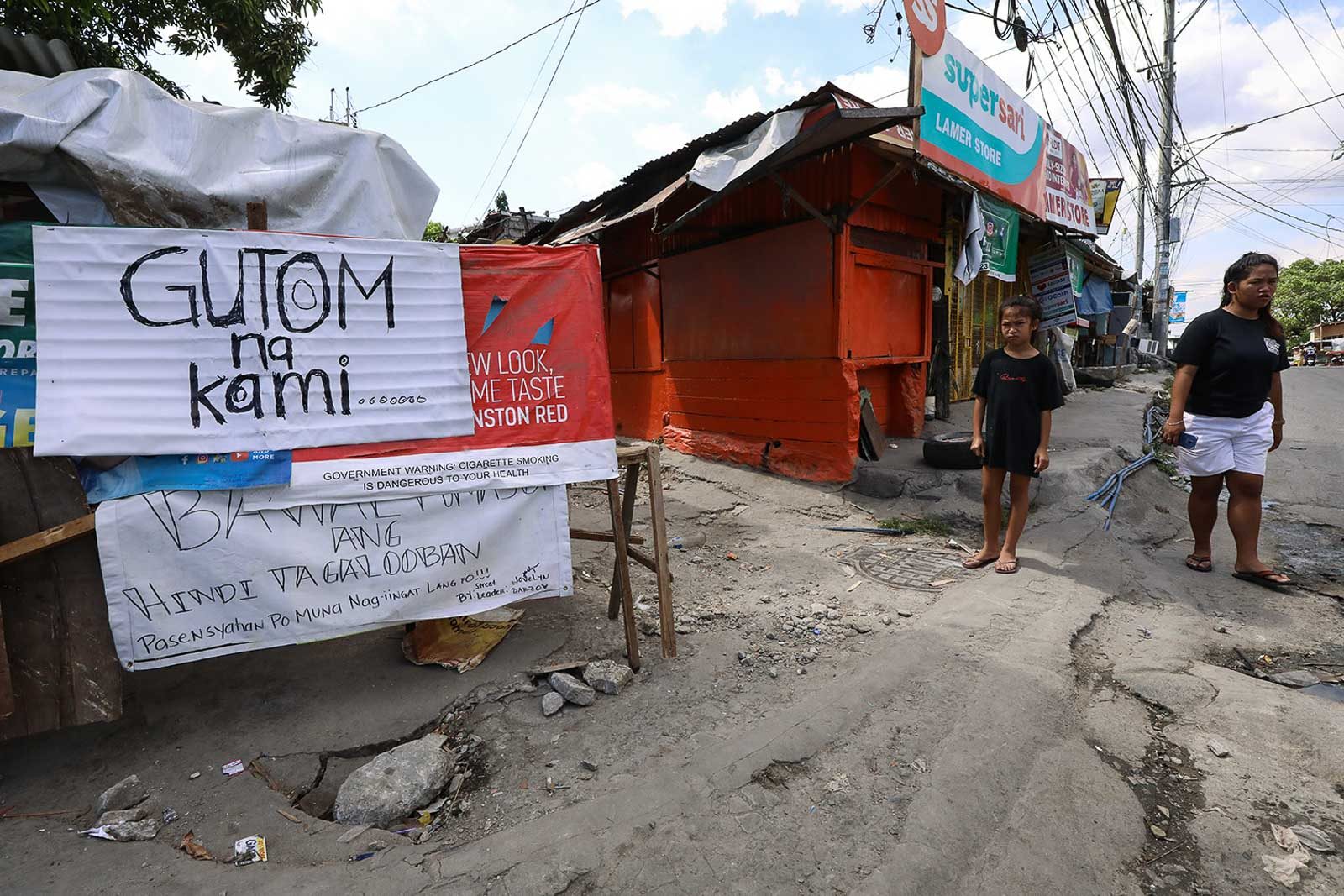SUMMARY
This is AI generated summarization, which may have errors. For context, always refer to the full article.

MANILA, Philippines – The coronavirus pandemic has affected thousands of people in the country regardless of socioeconomic status. It has claimed lives and cost many their livelihood and businesses.
As of Tuesday, the Philippines recorded nearly 8,000 cases of coronavirus, including 530 deaths and 975 recoveries. (READ: DOLE needs additional P9.4B cash aid to cover all workers affected by crisis)
The Department of Health earlier said that the pandemic might last until 2021 if no intervention is done. (READ: Worst case scenario? Pandemic may last until 2021 if no intervention – DOH)
As the country prepares for the new normal, experts at the University of the Philippines (UP) have urged the government to use universal approaches “in addressing the needs of all” during the coronavirus pandemic.
This was one of the recommendations of the UP COVID-19 Pandemic Response Team in its latest policy note, “Addressing the Immediate Needs of All, Especially the Most Vulnerable Sectors: Analysis and Recommendations,” released on Tuesday, April 28.
“We argue for universal approaches to social protection based on the belief that they cast a wider net of support to include people at the edge of poverty, and, by design, can better address situations of generalized insecurity and, as what we have today, a widespread humanitarian crisis,” the experts said.
The report explains, during this humanitarian crisis, “it becomes even more critical to ensure the inclusion and meaningful participation of the vulnerable and excluded, and to address differentiated economic and social needs.”
The government earlier decided to extend the lockdown in Metro Manila and other parts of Luzon to May 15. Outside Luzon, lockdowns have also been implemented in Cebu province, including Cebu City, as well as in Antique, Iloilo, Davao del Norte, and Davao City, until May 15.
How can the government ensure inclusivity in responding to the crisis?
Below are the recommendations from the UP experts:
1. Adopt more universal/inclusive, rights-based, and lifecycle approaches to social protection given the widening and deepening poverty levels and generalized insecurity among the population due to the Covid-19 pandemic
According to the group, adequate social protections should be made available and accessible to all in times of crises.
2. Promote inter-LGU equity in the provision of social protection assistance
In providing social assistance to people, the UP experts urged the Department of the Interior and Local Government (DILG) to “not only monitor LGU compliance with current rules and regulations, but as importantly, to assist and help capacitate weaker LGUs in this regard.”
The group also said effective strategies and best practices by different local government units should be shared so these could be replicated by others.
3. Address the vital needs of the basic sectors, taking into consideration distinct and particular vulnerabilities
The group said all basic sectors should be provided with social protection, including income and food security; quality health care; a constant water supply and sanitation services; and regular, accurate, and accessible information on COVID-19 in the easiest possible ways.
The group also made special mention of giving the vulnerable sectors venues to participate in the decision-making.
According to the group, sector-specific priorities should be deemed equally important for survival. They laid out several pointers on how to respond to the crisis, taking into account the needs of the persons with disabilities, older persons, indigenous peoples, women and gender, workers in the informal economy, and street dwellers.
The details for each sector can be found in the attached document.
4. Promote transparency, accountability, and citizen’s participation
The UP experts said creating a monitoring and evaluating group composed of members of civil society, the academe, and other stakeholders that will work closely with the government taskforce on coronavirus would help in evaluating the government’s social protection programs.
They also said it can function as an “independent feedback and complaints mechanism at the local and national levels working closely with the LGUs, DILG, DSWD (Department of Social Welfare and Development), among others.”
The full policy note can be accessed below:
– Rappler.com
Add a comment
How does this make you feel?
There are no comments yet. Add your comment to start the conversation.